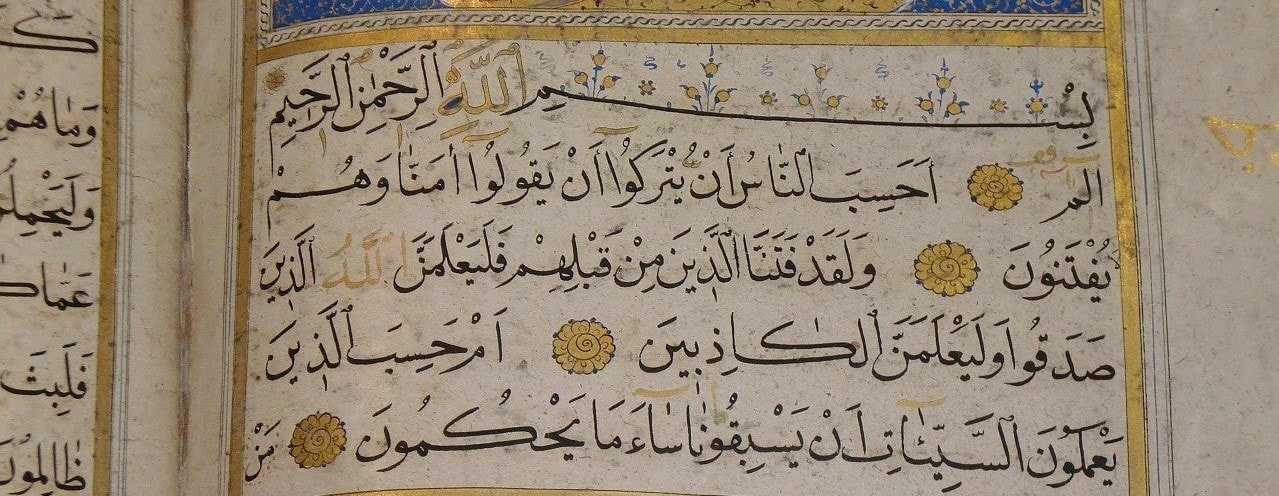Differences Between the Canonical Recitations of Qur’an
Answered by Ustadh Tabraze Azam
Question: I would like to know what is the extent of differences between the various riwayat of Qur’an? For example, do some riwayat have completely different words in certain ayats (for example the word “‘fi’ (in)” in one riwayat is “min (from)” in another riwayat, or even completely different sentences as is the case with the Bible?
Answer: Wa alaikum assalam wa rahmatullahi wa barakatuh,
I pray that you are in the best of health and faith, insha’Allah.
No, the Qur’an does not contain completely different words in certain verses within the variant recitals, and certainly not different, ‘new’ verses.
The Seven Recitals
Shaykh `Ali Hani, a master of the Qur’an, Exegesis, its Recitals and more, mentions that the soundest position on the matter is that the seven ‘recitals’ are dialects of the most eloquent tribes of the Arabs. The narrations regarding these seven variants or recitals of the Qur’an are mass transmitted (mutawatir).
`Abdullah bin `Abbas relates that Allah’s apostle (Allah bless him and give him peace) said: ‘Gabriel recited the Qur’an to me in one way. Then I requested him (to read it in another way), and continued asking him to recite it in other ways, and he recited it in several ways till he ultimately recited it in seven different ways’. [Bukhari]
On another occasion, the Messenger of Allah (Allah bless him and give him peace) said to `Umar (Allah be pleased with him) when he complained to him of the recitation of Hisham, “… this Qur’an has been revealed to be recited in seven different ways, so recite of it whichever is easier for you” [Bukhari]
In our times, Hafs has become one of the most, if not the most, popular recital of the Qur’an.
The Differences between the Recitals
Shaykh `Ali continues that there are some minor differences between the recitals, primarily in pronunciation, due to the dialectical differences between the various tribes. Hence the Uthmani script is one. There are no different spellings, new words with similar meanings, or anything else. Rather, all of the variant readings can be recited from the same standard written text. Though, one should keep in mind that they were all revealed, and not extracted from the written script.
As for the most apparent examples of differences are the following:
[1] In the diacritical marks (for example, the letter ‘ya’ instead of the letter ‘ba’);
[2] In the vowelization (a dhamma in one recital and a fatha in another);
[3] The absence of a shadda
All of these differences are massly transmitted from generation to generation to this day, orally, from teacher to student, with an unbroken chain back to the Messenger of Allah (Allah bless him and give him peace).
And Allah alone gives success.
Wassalam,
Tabraze Azam
Checked & Approved by Faraz Rabbani
